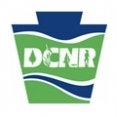|
Pa. DCNR Outlines Proposals for Operations on State Lands

In May of this year Gov. Tom Corbett lifted a four-year ban on new subsurface oil and gas leases in state forests and parks. However, that Order still bars any "additional surface disturbance on state forest or state park lands."
DCNR recently outlined proposed rules to define what constitutes a "surface disturbance." In sum, expansion or construction of roads and the installation of surface equipment, such as pipelines and compressor stations, would not be allowed; but short-term disruptions, such as seismic surveys, would be permitted as long as the effects of such activities can be remediated.
New leases with the Commonwealth, however, may not be quick in coming. In July, the Commonwealth agreed not to enter into any leases until a dispositive Order is issued in a lawsuit by the Pennsylvania Environmental Defense Fund currently pending before the Commonwealth Court.
|
|
Re-thinking Community Relationships
One of the toughest challenges an E&P company can face in today's news-hungry climate is a PR crisis. As reported here, negative publicity is extremely detrimental to producers and their bottom line. Companies must, therefore, be
proactive, developing an integrated media strategy and communications protocol to "control the message," establishing strong local and landowner relationships before activists and anti-drilling forces gain a foothold.
Some tips:
- Be transparent whenever possible
- Engage impacted residents - create realistic expectations
- Build a corporate culture of respect for local residents
- Create an "Upside" for impacted non-Lessor residents
- Work with (and get to know) local government & EMS
- Know local media outlets; "get your story out"
- Take responsibility when warranted
Drilling is, by its nature, an industrial activity on largely residential land. There will always be inherent use conflicts, but a smart strategy of engagement can greatly modulate the fallout (both legal and non-legal) from those conflicts.
|